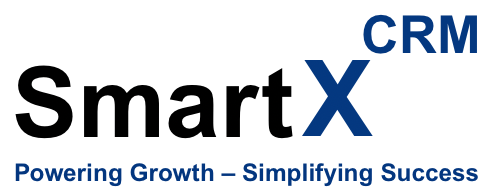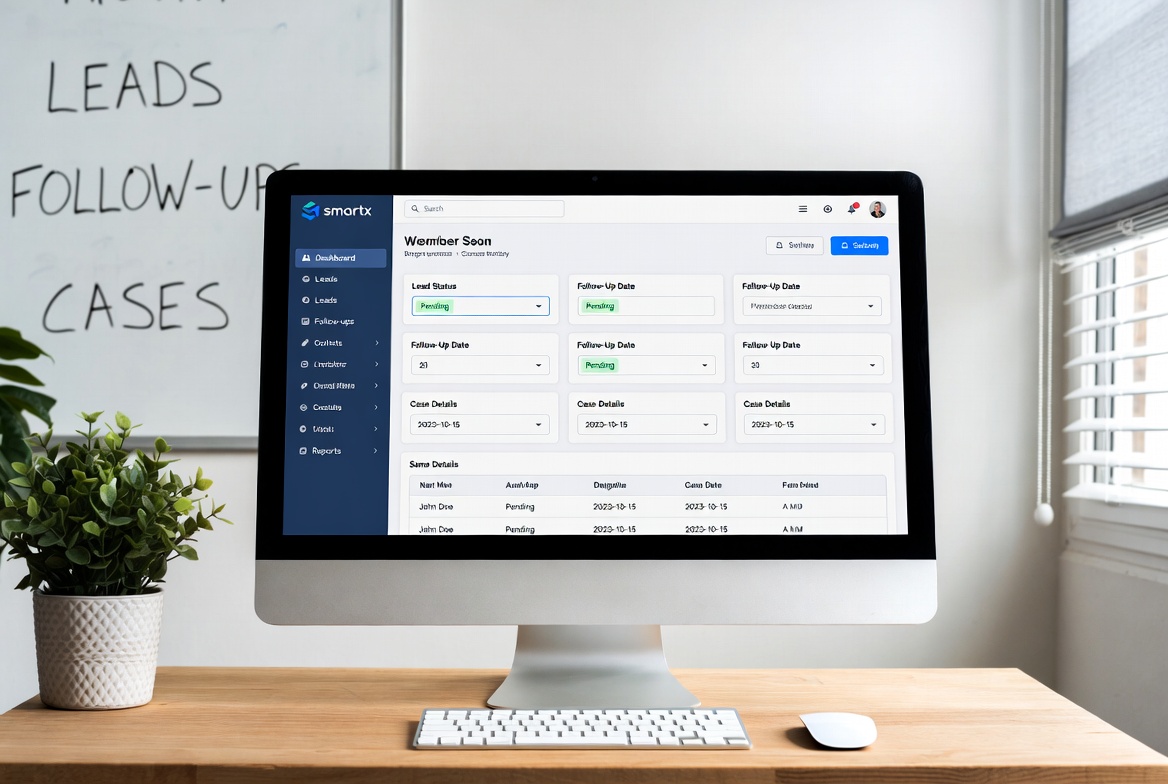Healthcare is evolving rapidly, and at the heart of this transformation lies the patient experience. In today’s competitive healthcare landscape, patient experience CRM systems have become essential tools for healthcare providers looking to deliver exceptional care while maintaining operational efficiency. CRM software for healthcare is revolutionizing how medical practices, hospitals, and healthcare organizations manage patient relationships, streamline communications, and enhance overall patient satisfaction.
This comprehensive guide explores how CRM helps patients experience better healthcare outcomes through improved communication, faster service delivery, and personalized care approaches. We’ll examine how patient engagement CRM systems are transforming the healthcare industry and why healthcare providers are increasingly turning to sophisticated CRM solutions like SmartX CRM to enhance their patient care delivery.
Understanding Patient Experience CRM in Healthcare
Patient experience CRM refers to specialized customer relationship management software designed specifically for healthcare environments. Unlike traditional CRM systems used in sales and marketing, healthcare CRM platforms focus on managing patient relationships, improving care coordination, and enhancing the overall patient journey from initial contact through ongoing care management.
The healthcare industry faces unique challenges that make traditional business approaches insufficient. Patients aren’t just customers – they’re individuals seeking care, often during vulnerable times. This distinction makes patient engagement CRM systems crucial for creating meaningful connections between healthcare providers and their patients.
Healthcare CRM systems serve as central hubs for patient information, communication history, appointment scheduling, treatment plans, and follow-up care coordination. These platforms enable healthcare organizations to deliver personalized, timely, and efficient care while maintaining compliance with healthcare regulations like HIPAA.
The Role of CRM in Modern Healthcare
Modern healthcare operates in an increasingly complex environment where patient expectations continue to rise. Patients now expect seamless communication, quick responses, and personalized care experiences similar to what they receive from other service industries. CRM software for healthcare addresses these expectations by providing healthcare organizations with tools to manage patient relationships more effectively.
Healthcare CRM systems integrate multiple touchpoints in the patient journey, from initial inquiries and appointment scheduling to post-treatment follow-ups and ongoing health management. This integration ensures that every interaction contributes to a comprehensive understanding of the patient’s needs, preferences, and health status.
The implementation of patient experience CRM solutions has become particularly important as healthcare organizations recognize the direct correlation between patient satisfaction and business outcomes. Satisfied patients are more likely to return for future care, refer others to the practice, and comply with treatment recommendations – all factors that contribute to better health outcomes and improved practice performance.
How CRM Software Enhances Personalized Care Communication
Creating Individualized Patient Profiles
Patient engagement CRM systems excel at creating comprehensive patient profiles that go beyond basic demographic information. These profiles include communication preferences, treatment history, family medical history, lifestyle factors, and personal preferences that influence healthcare decisions.
SmartX CRM’s healthcare solutions allow providers to document patient preferences for communication channels, appointment times, language preferences, and even specific concerns or anxieties patients may have about medical procedures. This detailed profiling enables healthcare teams to tailor their communication approach for each individual patient.
Healthcare providers using advanced CRM systems can track patient communication patterns, identifying which patients prefer text messages over phone calls, which patients respond better to visual educational materials, and which patients need additional support or reassurance during their healthcare journey.
Automated Yet Personal Communication
One of the most significant ways CRM software for healthcare improves patient experience is through automated communication that maintains a personal touch. Healthcare CRM systems can send automated appointment reminders, medication reminders, follow-up care instructions, and health screening notifications while personalizing each message based on the patient’s profile and preferences.
For example, a patient with diabetes might receive automated reminders about blood sugar monitoring and dietary recommendations, while a patient recovering from surgery might receive different post-operative care instructions and recovery milestone check-ins. This level of personalization ensures that patients receive relevant information when they need it most.
SmartX CRM’s automation features allow healthcare practices to maintain consistent communication without overwhelming staff resources. The system can automatically escalate certain patient responses to appropriate healthcare team members, ensuring that urgent concerns receive immediate attention while routine communications are handled efficiently.
Multi-Channel Communication Management
Modern patient experience CRM platforms support multiple communication channels, allowing patients to interact with their healthcare providers through their preferred methods. Whether patients prefer traditional phone calls, text messages, email, patient portals, or even social media platforms, healthcare CRM systems can manage all these touchpoints from a single interface.
This multi-channel approach is particularly important for reaching diverse patient populations with varying technological preferences and capabilities. Younger patients might prefer text-based communications and mobile app interactions, while older patients might be more comfortable with phone calls or email communications.
Healthcare CRM systems track communication across all channels, providing healthcare teams with complete visibility into patient interactions. This comprehensive view ensures that no patient communication is missed and that all team members have access to the same information when interacting with patients.
Achieving Faster Response Times Through CRM Integration
Streamlined Workflow Management
How CRM helps patients experience better healthcare outcomes is perhaps most evident in the dramatic improvement in response times that healthcare organizations achieve through CRM implementation. Healthcare CRM systems streamline workflow management by automatically routing patient inquiries to the appropriate team members based on the nature of the inquiry and staff availability.
When patients call with questions about appointments, billing, or medical concerns, CRM systems can immediately display their complete history, current treatment plans, and previous interactions. This instant access to information eliminates the need for staff to search through multiple systems or ask patients to repeat information they’ve already provided.
SmartX CRM’s healthcare solutions include intelligent routing capabilities that ensure urgent medical concerns are immediately flagged and directed to clinical staff, while administrative inquiries are handled by appropriate administrative team members. This automated triage system significantly reduces response times and ensures that patients receive appropriate attention based on the urgency of their needs.
Automated Response and Escalation Systems
Healthcare CRM systems can provide immediate automated responses to common patient inquiries while simultaneously routing more complex issues to appropriate staff members. For example, when a patient submits a prescription refill request through the patient portal, the CRM system can automatically acknowledge the request, provide an estimated completion time, and route the request to the pharmacy team.
More sophisticated patient engagement CRM systems can analyze the content of patient communications to identify urgent keywords or phrases that require immediate attention. Messages containing words like “chest pain,” “severe bleeding,” or “emergency” can be automatically flagged and immediately routed to clinical staff, even outside normal business hours.
This automated escalation ensures that potentially serious medical concerns receive immediate attention while routine inquiries are handled efficiently through standard channels. The result is faster response times for all patients and peace of mind knowing that urgent concerns won’t be overlooked.
Real-Time Notification Systems
Modern healthcare CRM platforms include real-time notification systems that alert healthcare team members immediately when patient communications require their attention. These notifications can be sent via email, text message, or through integrated communication platforms, ensuring that team members can respond quickly regardless of their location.
For healthcare providers who need to coordinate care across multiple locations or with remote team members, these real-time notifications are essential for maintaining consistent response times. A patient’s question about medication side effects can be immediately routed to their prescribing physician, even if that physician is at a different clinic location.
SmartX CRM’s notification system can be customized based on staff roles and responsibilities, ensuring that the right team members receive the right notifications without overwhelming anyone with irrelevant communications. This targeted approach maximizes efficiency while ensuring comprehensive coverage of patient needs.
Telehealth Integration and CRM: A Perfect Match
Seamless Virtual Care Management
The integration of CRM software for healthcare with telehealth platforms has revolutionized how healthcare providers deliver virtual care. Healthcare CRM systems serve as the central coordination point for telehealth appointments, managing everything from initial scheduling and patient preparation to post-appointment follow-up and care coordination.
Patient experience CRM platforms can automatically send patients pre-appointment instructions for telehealth visits, including technical requirements, login information, and preparation guidelines. This proactive communication reduces technical difficulties during virtual appointments and helps patients feel more comfortable with the telehealth experience.
During telehealth appointments, integrated CRM systems provide healthcare providers with immediate access to complete patient histories, recent communications, and relevant medical information. This seamless access ensures that virtual appointments are as comprehensive and effective as in-person visits.
Enhanced Patient Preparation and Follow-Up
Healthcare CRM systems excel at managing the extended patient journey that surrounds telehealth appointments. Before virtual visits, CRM platforms can automatically send patients educational materials, intake forms, and preparation instructions tailored to their specific appointment type and medical needs.
After telehealth appointments, patient engagement CRM systems can automatically send follow-up communications, including appointment summaries, prescribed medications, care instructions, and scheduling for any necessary follow-up appointments. This automated follow-up ensures that patients have all the information they need to continue their care effectively.
SmartX CRM’s telehealth integration capabilities include automated medication reminders, health monitoring check-ins, and educational content delivery based on the care plans established during virtual appointments. This ongoing engagement helps bridge the gap between appointments and supports better patient adherence to treatment recommendations.
Remote Patient Monitoring Integration
Advanced healthcare CRM systems can integrate with remote patient monitoring devices and health tracking applications, providing healthcare providers with continuous visibility into patient health metrics between appointments. This integration is particularly valuable for managing chronic conditions and post-surgical recovery.
When remote monitoring devices detect concerning changes in patient health metrics, integrated CRM systems can automatically alert healthcare team members and initiate appropriate response protocols. This proactive approach to patient monitoring can prevent complications and reduce the need for emergency interventions.
Patients benefit from this integration through increased confidence in their healthcare team’s ability to monitor their progress and respond quickly to any concerns. The knowledge that their healthcare providers are actively monitoring their health status provides peace of mind and encourages better engagement with their treatment plans.
Patient Retention Benefits of Healthcare CRM Systems
Building Long-Term Patient Relationships
How CRM helps patients develop lasting relationships with their healthcare providers extends far beyond individual appointments or treatments. Healthcare CRM systems enable providers to maintain consistent, personalized communication with patients over extended periods, building trust and loyalty that leads to better long-term health outcomes.
Healthcare CRM platforms track patient preferences, communication history, and care experiences over time, allowing healthcare teams to continuously improve their service delivery based on individual patient needs. This personalized approach makes patients feel valued and understood, encouraging them to maintain ongoing relationships with their healthcare providers.
Long-term patient relationships benefit both patients and healthcare providers. Patients receive more coordinated care as their healthcare teams develop deeper understanding of their health needs, while providers benefit from improved practice stability and opportunities to deliver more comprehensive care.
Proactive Health Management
Patient experience CRM systems enable healthcare providers to take proactive approaches to patient health management rather than simply responding to problems as they arise. CRM platforms can track patient health screening schedules, medication compliance, and preventive care needs, automatically generating reminders and outreach communications.
For example, SmartX CRM can automatically identify patients who are due for annual screenings, vaccination updates, or chronic condition monitoring appointments. The system can then initiate personalized outreach campaigns that encourage patients to schedule appropriate appointments, often preventing more serious health issues from developing.
This proactive approach demonstrates to patients that their healthcare providers are invested in their long-term health and wellbeing, not just treating immediate problems. Patients who receive consistent, proactive care are more likely to remain loyal to their healthcare providers and achieve better health outcomes over time.
Improved Care Coordination
Healthcare CRM systems excel at coordinating care across multiple providers, specialties, and healthcare settings. When patients need to see specialists, undergo procedures, or receive care from multiple team members, CRM platforms ensure that all relevant information is shared appropriately and that patient communications remain consistent.
Patient engagement CRM systems can automatically generate referral communications, share relevant medical history with specialists, and coordinate follow-up care instructions across multiple providers. This comprehensive coordination reduces patient confusion and ensures that all members of the healthcare team are working toward the same goals.
Patients who experience well-coordinated care are more likely to remain with healthcare systems that demonstrate effective communication and collaboration. The peace of mind that comes from knowing that all healthcare providers are working together creates strong patient loyalty and trust.
Key Features of Patient Experience CRM Systems
Comprehensive Patient Communication Management
Effective CRM software for healthcare includes robust communication management features that support multiple interaction channels and communication preferences. These systems maintain complete communication histories, track patient preferences, and ensure that all team members have access to relevant interaction information.
Advanced communication management features include automated response capabilities, intelligent routing based on communication content, and integration with various communication channels including phone systems, email platforms, text messaging services, and patient portals.
SmartX CRM’s communication management capabilities include sentiment analysis features that can identify patient frustration or satisfaction in written communications, allowing healthcare teams to respond appropriately and address concerns before they escalate.
Advanced Scheduling and Appointment Management
Healthcare CRM systems include sophisticated scheduling features that go beyond simple appointment booking. These platforms can manage complex scheduling requirements including provider availability, equipment needs, room assignments, and patient preparation requirements.
Patient experience CRM platforms often include patient self-scheduling capabilities that allow patients to book appointments online while ensuring that all scheduling requirements are met automatically. These systems can also manage cancellations, rescheduling requests, and waitlist management to optimize appointment availability.
Automated appointment reminders, preparation instructions, and follow-up scheduling help reduce no-show rates and ensure that patients are prepared for their appointments. These features improve both patient satisfaction and practice efficiency.
Clinical Integration and Care Coordination
Modern healthcare CRM systems integrate seamlessly with electronic health record (EHR) systems, practice management platforms, and clinical decision support tools. This integration ensures that CRM functionality enhances clinical care rather than creating additional administrative burden.
Clinical integration features allow healthcare providers to access complete patient information during CRM interactions, ensuring that communications are informed by current medical status and treatment plans. This integration also enables CRM systems to support clinical workflows such as care plan management and medication adherence monitoring.
Care coordination features help manage complex patient cases that involve multiple providers, ensuring that all team members have access to current information and that patient communications remain consistent across all interactions.
Analytics and Performance Monitoring
Healthcare CRM systems include comprehensive analytics capabilities that help healthcare organizations monitor patient satisfaction, communication effectiveness, and operational efficiency. These analytics provide insights that can drive continuous improvement in patient experience and practice performance.
Patient engagement CRM analytics can track metrics such as response times, patient satisfaction scores, communication preferences, and care adherence rates. This data helps healthcare organizations identify opportunities for improvement and measure the impact of patient experience initiatives.
Advanced analytics capabilities can identify patterns in patient communications that might indicate developing health concerns or satisfaction issues, enabling proactive interventions that prevent problems from escalating.
Implementing CRM in Healthcare: Best Practices
Choosing the Right Healthcare CRM Platform
Selecting appropriate CRM software for healthcare requires careful consideration of specific organizational needs, technical requirements, and integration capabilities. Healthcare organizations should evaluate CRM platforms based on their ability to support clinical workflows, maintain regulatory compliance, and integrate with existing systems.
Key evaluation criteria include HIPAA compliance capabilities, EHR integration features, scalability options, user interface design, and vendor support services. Organizations should also consider the total cost of ownership, including implementation costs, ongoing licensing fees, and training requirements.
SmartX CRM offers healthcare-specific features designed to address the unique requirements of medical practices, including specialized workflow templates, healthcare-compliant communication tools, and industry-specific analytics capabilities.
Staff Training and Change Management
Successful implementation of patient experience CRM systems requires comprehensive staff training and effective change management strategies. Healthcare team members need to understand not only how to use the CRM system but also how it fits into their overall patient care responsibilities.
Training programs should address both technical system operation and best practices for patient communication and engagement. Staff members need to understand how CRM tools can enhance their ability to provide excellent patient care rather than viewing the system as additional administrative burden.
Change management strategies should emphasize the patient care benefits of CRM implementation while providing ongoing support for staff members as they adapt to new workflows and processes. Regular feedback sessions and continuous improvement initiatives help ensure long-term success.
Integration with Existing Healthcare Systems
Healthcare CRM implementation requires careful integration with existing healthcare technology systems including EHR platforms, practice management systems, billing software, and clinical decision support tools. Successful integration ensures that CRM functionality enhances rather than disrupts existing workflows.
Integration planning should address data sharing requirements, workflow coordination needs, and user experience considerations. Healthcare organizations should work with CRM vendors and system integrators who have experience with healthcare-specific integration challenges.
How CRM helps patients experience seamless healthcare delivery depends largely on the quality of system integration. Poorly integrated systems can create information silos and workflow disruptions that negatively impact patient care.
Measuring Success: KPIs for Healthcare CRM
Patient Satisfaction Metrics
Healthcare organizations implementing patient engagement CRM systems should track comprehensive patient satisfaction metrics to measure the impact of their CRM initiatives. These metrics should include both quantitative measures such as satisfaction scores and qualitative feedback about specific aspects of the patient experience.
Key patient satisfaction metrics include communication satisfaction scores, appointment scheduling satisfaction, response time satisfaction, and overall care experience ratings. Organizations should also track patient feedback about specific CRM-enabled services such as automated reminders and online scheduling capabilities.
Patient satisfaction surveys should be conducted regularly and should include questions specifically about communication experiences and technology interactions. This feedback provides valuable insights for continuous improvement of CRM-enabled patient services.
Operational Efficiency Indicators
CRM implementation should result in measurable improvements in operational efficiency across healthcare organizations. Key efficiency metrics include response times to patient communications, appointment scheduling efficiency, staff productivity measures, and resource utilization rates.
Healthcare organizations should track metrics such as average response time to patient inquiries, percentage of communications resolved on first contact, appointment no-show rates, and staff time allocation between administrative tasks and patient care activities.
CRM software for healthcare should enable organizations to achieve efficiency gains while maintaining or improving patient care quality. Metrics should reflect this balance between efficiency and quality outcomes.
Clinical Outcome Improvements
The ultimate measure of CRM success in healthcare is improvement in patient clinical outcomes. Healthcare organizations should track metrics that reflect the clinical impact of improved patient communication and engagement.
Clinical outcome metrics might include medication adherence rates, preventive care compliance, chronic disease management indicators, and patient health improvement measures. Organizations should also track metrics related to care coordination effectiveness and clinical workflow efficiency.
Long-term clinical outcome tracking helps healthcare organizations demonstrate the value of CRM investment and identify opportunities for further improvement in patient care delivery.
The Future of Patient Experience CRM
Artificial Intelligence and Predictive Analytics
The future of patient experience CRM systems includes advanced artificial intelligence capabilities that can predict patient needs, identify potential health concerns, and recommend personalized communication strategies. AI-powered CRM systems will be able to analyze patient communication patterns, health data, and behavioral indicators to provide healthcare teams with actionable insights.
Predictive analytics capabilities will enable healthcare organizations to identify patients at risk for non-compliance, health complications, or care gaps before problems develop. This proactive approach will further improve patient outcomes while reducing healthcare costs.
SmartX CRM continues to invest in AI and machine learning capabilities that will enhance healthcare providers’ ability to deliver personalized, proactive patient care through intelligent automation and predictive insights.
Enhanced Mobile and Digital Experiences
Future healthcare CRM platforms will provide increasingly sophisticated mobile and digital experiences that meet patients’ expectations for convenient, accessible healthcare interactions. Mobile-first design approaches will ensure that patients can easily access healthcare services and communicate with their providers from any device.
Digital experience enhancements will include voice-activated interfaces, augmented reality features for patient education, and seamless integration with consumer health tracking devices and applications. These technological advances will make healthcare interactions more intuitive and engaging for patients.
Patient engagement CRM platforms will continue evolving to support emerging digital health technologies while maintaining focus on human-centered care experiences that build trust and promote positive health outcomes.
Integration with Emerging Healthcare Technologies
Healthcare CRM systems will increasingly integrate with emerging healthcare technologies including Internet of Things (IoT) devices, blockchain platforms for health data management, and advanced telemedicine capabilities. These integrations will create comprehensive digital health ecosystems that support seamless patient experiences across all care settings.
Integration with wearable health monitoring devices will enable continuous patient engagement and proactive health management. Blockchain integration will enhance data security and patient control over health information sharing.
The continued evolution of healthcare CRM technology will focus on creating more connected, intelligent, and patient-centered healthcare experiences that improve outcomes while reducing costs and complexity.
Conclusion: Transforming Healthcare Through Better Patient Relationships
How CRM helps patients experience better healthcare outcomes represents a fundamental shift toward patient-centered care delivery that prioritizes relationship building, personalized communication, and proactive health management. Healthcare organizations that implement comprehensive patient experience CRM systems position themselves to deliver superior patient care while achieving operational efficiency and long-term sustainability.
The integration of CRM software for healthcare with clinical workflows, telehealth platforms, and emerging healthcare technologies creates opportunities for healthcare organizations to differentiate themselves through exceptional patient experiences. Organizations like SmartX CRM are leading this transformation by providing healthcare-specific CRM solutions that address the unique needs of medical practices and healthcare systems.
Patient engagement CRM systems represent more than technology implementations – they represent strategic investments in patient relationship management that drive better health outcomes, improved patient satisfaction, and sustainable practice growth. Healthcare organizations that embrace these technologies and the patient-centered approaches they enable will be best positioned for success in the evolving healthcare landscape.
The future of healthcare lies in the ability to combine clinical expertise with technological innovation to create personalized, efficient, and effective patient care experiences. Healthcare CRM systems provide the foundation for this transformation, enabling healthcare providers to build stronger relationships with their patients while delivering the high-quality care that patients deserve.
As healthcare continues to evolve, the organizations that prioritize patient experience through sophisticated CRM implementation will lead the industry in patient satisfaction, clinical outcomes, and operational performance. The investment in patient experience CRM technology represents an investment in the future of healthcare delivery – one that puts patients at the center of everything healthcare organizations do.





Leave a comment: